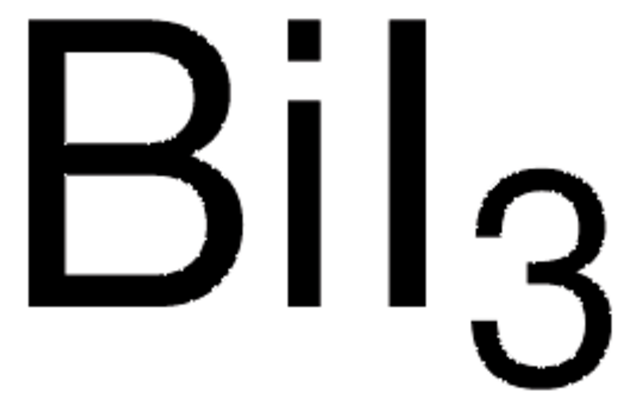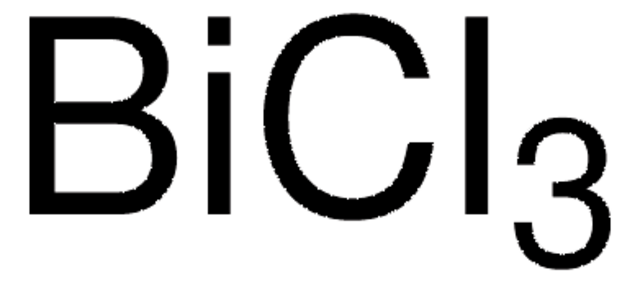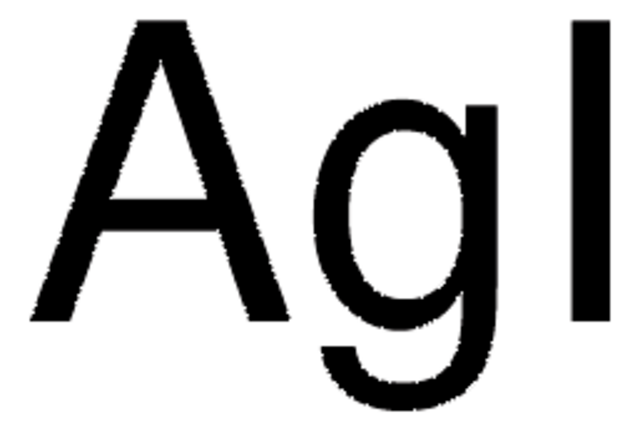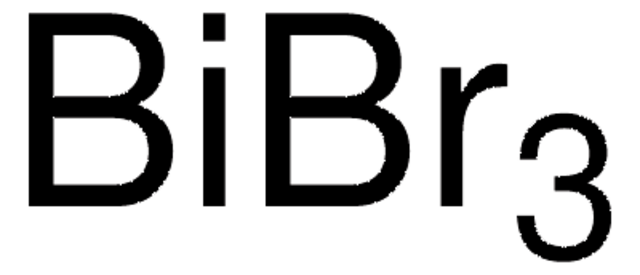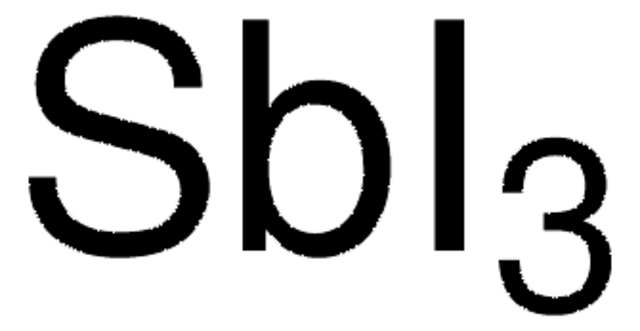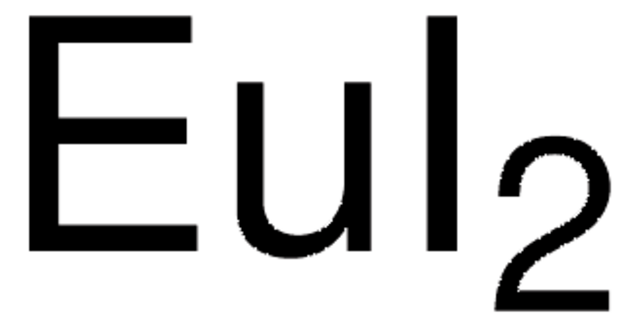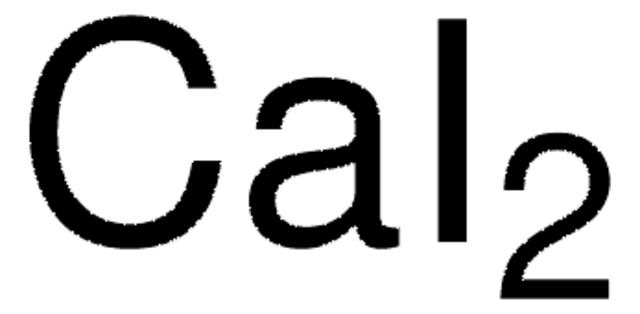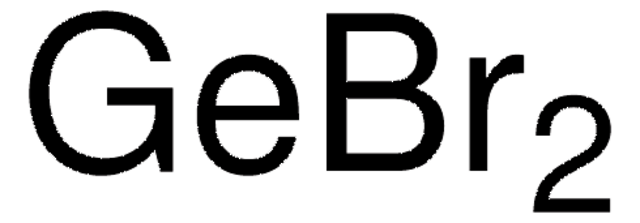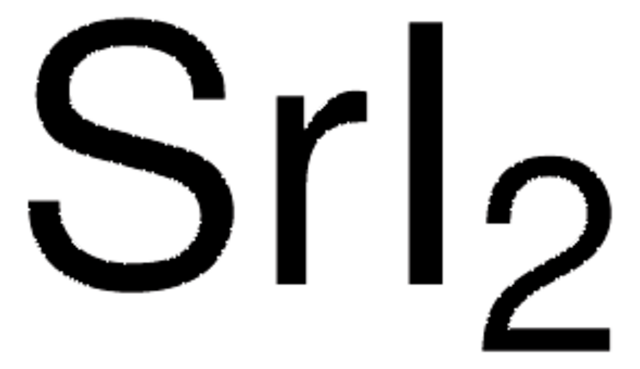229474
Bismuth(III) iodide
≥99.998% trace metals basis
Synonym(s):
Bismuth triiodide, Triiodobismuthane
Sign Into View Organizational & Contract Pricing
All Photos(1)
About This Item
Empirical Formula (Hill Notation):
BiI3
CAS Number:
Molecular Weight:
589.69
EC Number:
MDL number:
UNSPSC Code:
12352302
PubChem Substance ID:
NACRES:
NA.23
Recommended Products
Quality Level
Assay
≥99.998% trace metals basis
form
powder and chunks
reaction suitability
reagent type: catalyst
core: bismuth
impurities
≤15.0 ppm Trace Metal Analysis
mp
408 °C (lit.)
density
5.78 g/mL at 25 °C (lit.)
SMILES string
I[Bi](I)I
InChI
1S/Bi.3HI/h;3*1H/q+3;;;/p-3
InChI key
KOECRLKKXSXCPB-UHFFFAOYSA-K
Looking for similar products? Visit Product Comparison Guide
Signal Word
Danger
Hazard Statements
Precautionary Statements
Hazard Classifications
Eye Dam. 1 - Skin Corr. 1B
Storage Class Code
8A - Combustible corrosive hazardous materials
WGK
WGK 3
Flash Point(F)
Not applicable
Flash Point(C)
Not applicable
Personal Protective Equipment
dust mask type N95 (US), Eyeshields, Gloves
Choose from one of the most recent versions:
Already Own This Product?
Find documentation for the products that you have recently purchased in the Document Library.
Customers Also Viewed
Mirko Scholz et al.
Physical chemistry chemical physics : PCCP, 20(16), 10677-10685 (2017-12-21)
Trivalent bismuth compounds featuring octahedral halide coordination, such as BiI3, double-perovskite structures and vacancy-ordered perovskite derivatives, have recently attracted considerable attention as potential environmentally benign thin film materials for solar light-harvesting and optoelectronic applications aiming to replace toxic lead-based perovskites.
Wenhua Bi et al.
Chemical communications (Cambridge, England), (44)(44), 5743-5745 (2008-11-15)
The dehydration of a iodobismuthate hybrid built up from Bi(4)I(16) clusters and protonated L-cystine molecules involves an unprecedented reversible dynamic structural change in the solid state leading to 1D BiI(4) chains and 1D helical molecular chains, highlighting the templating effect
Jie Sun et al.
Spectrochimica acta. Part A, Molecular and biomolecular spectroscopy, 79(5), 904-908 (2011-05-10)
A novel series of Ge-Te-BiI(3) chalcogenide glasses were prepared by traditional melt-quenching method and the glass-forming region was determined. Properties measurements including density, Vis-NIR and infrared (IR) transmission spectra with FTIR, XRD, DSC were adopted to analyze the composition, structure
F M Abdel-Gawad
Journal of pharmaceutical and biomedical analysis, 16(5), 793-799 (1998-04-16)
A systematic spectrophotometric study on the ion-pair formation of Bi(III)-iodide with amineptine hydrochloride, piribedil and trimebutine maleate is carried out. The optimal experimental conditions pH, concentration of Bi(III) nitrate, potassium iodide; and the nature and amount of organic solvent have
R R Jia et al.
Amino acids, 31(1), 85-90 (2006-04-04)
New bioinorganic complexes of the aspartic acid with the antimony or bismuth triiodide were synthesized by a direct solid-solid reaction at room temperature. The formula of the complex is MI(3)[OOCCH(2)CH(NH(2))CO](2.5) x 2.5H(2)O (M = Sb, Bi). The complex may be
Our team of scientists has experience in all areas of research including Life Science, Material Science, Chemical Synthesis, Chromatography, Analytical and many others.
Contact Technical Service